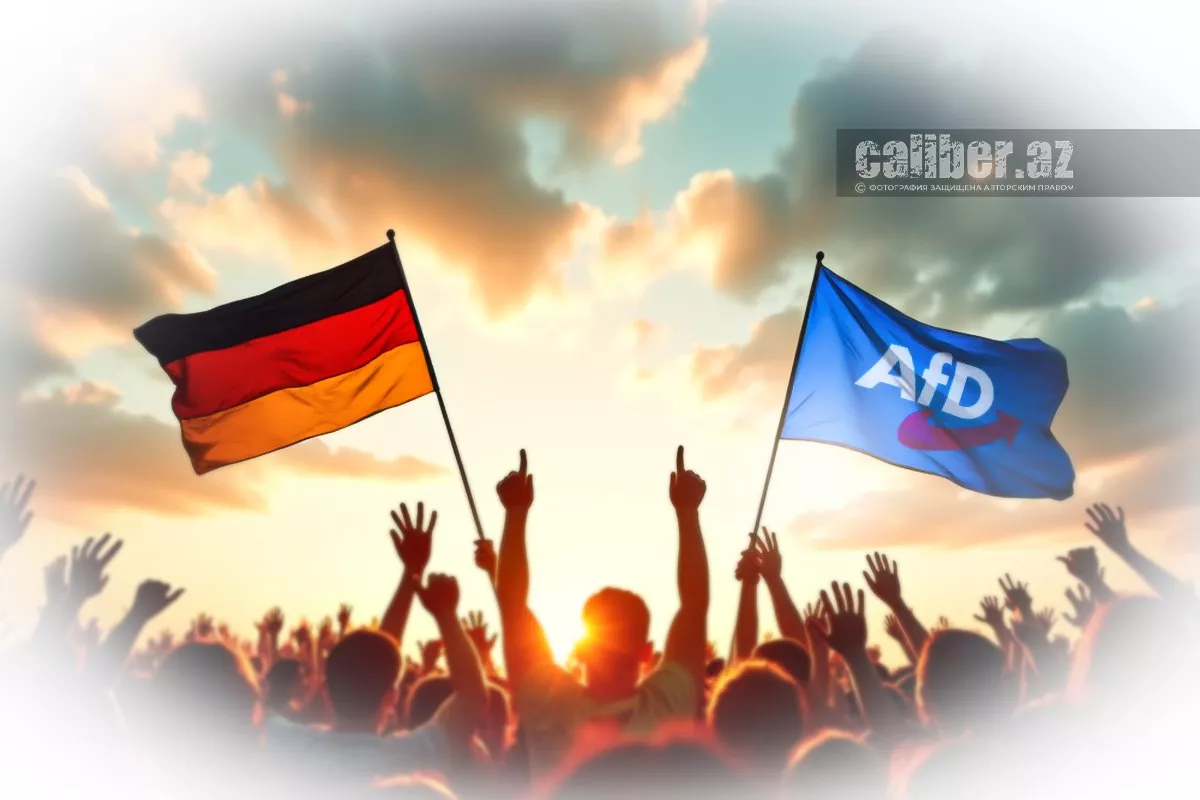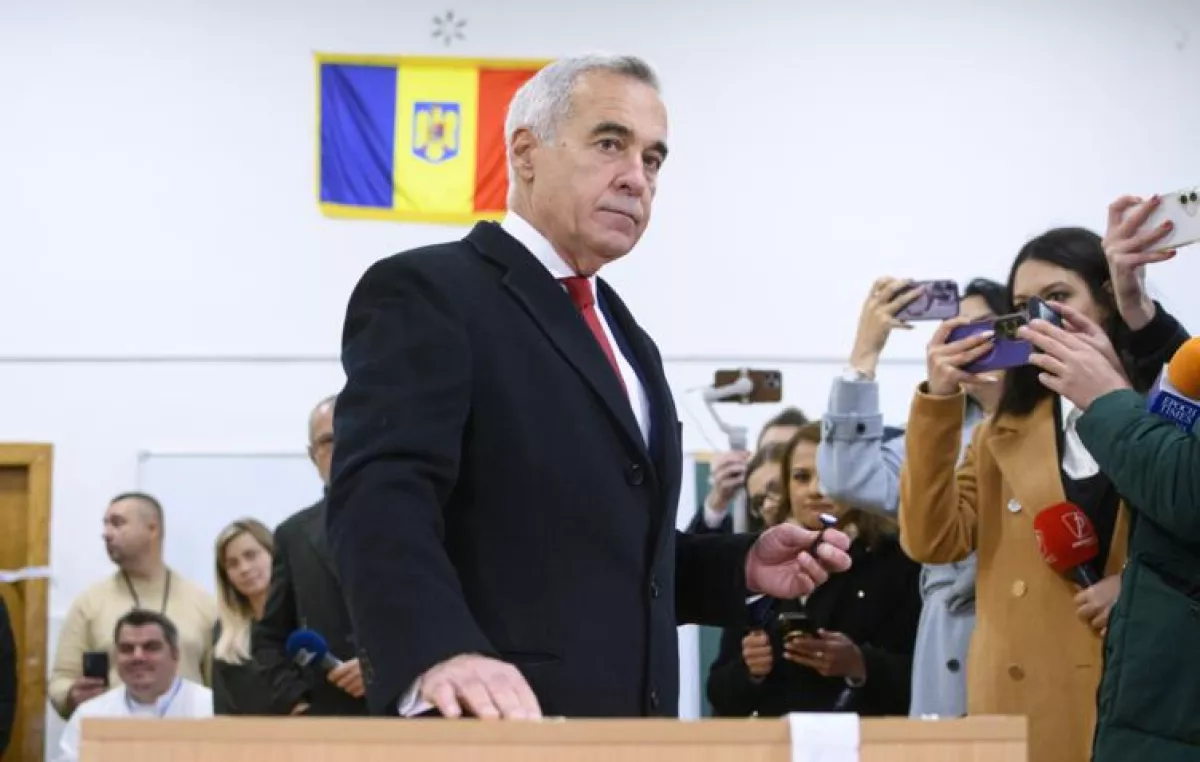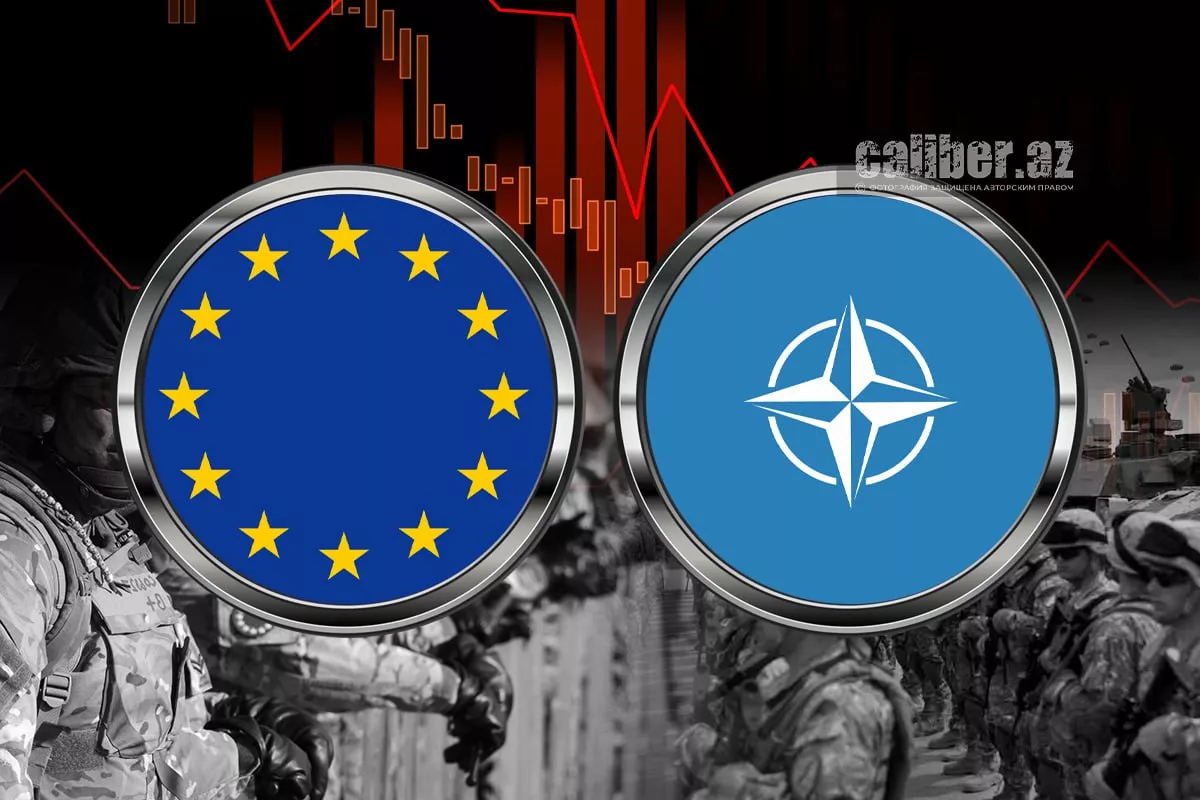Repressions for strengthening EU unity The path to collapse
Bureaucrats in Brussels awaited this weekend with dread. They knew that, despite propaganda, manipulation, and repression, the citizens of Romania, another EU-NATO country, would once again express their opposition to the liberal elites who have ruled them for the past decades with the help of Brussels. Against the backdrop of the rise of new opposition movements, the ruling liberal parties in the EU are resorting to unprecedented repressions.
On May 2, Berlin declared the most popular party in the country, "Alternative for Germany," an extremist group, and preparations are underway to ban it. This continues a trend from recent months, including the cancellation of the previous round of elections in Romania and the removal of Marine Le Pen from French politics. Additionally, a mechanism is being developed to strip the vote from EU member states that oppose the course approved by the liberal establishment of the EU-NATO. Repressions won’t help, but they will ensure the collapse of the European Union, and likely NATO as well.
The EU uses its “Russian experience” in confronting the opposition
The audacity of the recent decisions by the Euro-liberal establishment is striking. On May 2, the newly emerged opposition party Alternative for Germany (AfD), which recently topped the polls, was declared “far-right extremist.” This scandalous move appears even more provocative considering it was made by a government already on its way out, acting through the Office for the Protection of the Constitution — Germany’s domestic intelligence agency responsible for counterintelligence and political loyalty monitoring.
AfD’s popularity, having secured second place in recent elections, soared further amid scandals surrounding the formation of a new government involving discredited parties and a dramatic U-turn by the most influential liberal force — the Christian Democratic Union. Its leader, who had vowed to rescue the country from a debt crisis, announced after the election the need to abandon all borrowing limits.

In other words, the decision to label AfD as “far-right extremist” was made under extremely risky circumstances, virtually guaranteeing further destabilisation of an already fragile German state governed by weak parties. Moreover, it paves the way for a comeback of a significantly more radicalised incarnation of AfD in the near future. This development will reverberate across the entire EU, as AfD has long enjoyed the support of the new U.S. president’s team — from Vice President J.D. Vance to Elon Musk. On May 2, even Secretary of State Marco Rubio criticised the crackdown on AfD, calling it a form of “tyranny in disguise.”
In essence, by launching a crude purge of the country’s largest opposition force, Germany’s liberal elites — along with their EU allies — risk creating a much greater problem for themselves and the German state as a whole in the near future. Yet across the EU, Euro-liberal elites are rapidly dismantling long-standing taboos on political repression and the cleansing of the political field, now considering even previously tolerated and marginalised forces too dangerous to be allowed into mainstream politics.
Romania offers another example of this trend. The current troubles of the EU’s ruling circles in this country are largely self-inflicted, driven by the Euro-liberals’ increasingly paranoid desire to purge the political field of dissenters—even those with no real chance of winning.
Last November, Călin Georgescu emerged as the frontrunner in the first round of Romania’s presidential elections. From the very beginning, the liberal authorities and media targeted him. Georgescu represented a new, non-liberal opposition that was skeptical of the EU, particularly its push toward war with Russia. The establishment painted him as a dangerous fringe figure, underestimating his appeal.
Before the election, "independent" liberal media dismissed him as a radical outsider, citing “independent” polls by “independent” sociologists that claimed less than 5% of Romanians supported him. Instead, the media focused on the supposed real intrigue: which of the liberal, "pro-European" candidates would take the lead? It was the usual story in EU-integrated Eastern Europe—choosing between endless shades of gray and black amid stagnation and outright poverty.

Yet on election day, 23% of voters cast their ballots for Georgescu, making him the clear frontrunner. It became evident that voters were developing an immunity to propaganda, and were willing to vote “the wrong way” even after intense media conditioning. In response, the authorities turned to “independent” courts and the national security apparatus. The election results were annulled, and the public was told that Georgescu’s success was due to TikTok videos allegedly funded by Russian money.
The narrative sounded unconvincing from the start, but the pro-EU liberals and Brussels elites were unwilling to take the risk of allowing Georgescu into the second round. Nerves were already frayed after their political miscalculation ahead of Donald Trump’s victory in the U.S. election. Allowing a non-liberal president to come to power in Romania — a major EU member with a population of 19 million — was simply too much of a gamble.
With mounting problems involving Viktor Orbán in Hungary and Robert Fico in Slovakia, Brussels clearly panicked. Soon, it emerged — via American sources — that it was indeed Brussels that had pushed for the annulment of Romania’s election results. At the same time, it became increasingly clear that the TikTok allegations were, to put it mildly, far from truthful.
Still, growing nervousness drove the Euro-liberals to commit further blunders. Among them was the farcical prosecution of Georgescu, the ban on his candidacy, raids and detentions of his supporters, and the supposed uncovering of a “military conspiracy” led by a centenarian general.
Meanwhile, Romania’s new non-liberal opposition rallied behind a different candidate — George Simion. He quickly consolidated support from both his own base and the followers of the ousted Georgescu. As a result, even “independent” liberal sociologists were forced to acknowledge — before the elections — that Simion was polling at 29%, exceeding the numbers Georgescu had managed before his disqualification.
What’s worse for Brussels is that this new Romanian opposition leader doesn’t just criticise the Euro-liberal establishment or refuse to join the march to war with Russia, as Georgescu had. Compared to his predecessor, Simion has aligned himself even more closely with U.S. President Donald Trump — and Trump’s team has in turn intensified its support for these Eurosceptic forces in Romania.
In short, in their attempts to put out the smouldering fire within Romania’s liberal regime, the Euro-liberals and EU leadership repeatedly poured petrol instead of water. And now, the momentum behind the Romanian opposition has become unstoppable — no amount of talk about a “Russian intelligence operation” can contain it.
All of this bears a striking resemblance to the Western liberal establishment’s approach to Russian elections in the 1990s. Back then, gripped by fear of a possible victory by “communist” Gennady Zyuganov, the liberal elites in the U.S. and Europe openly aided Boris Yeltsin in effectively stealing the 1996 Russian presidential election — right before the stunned eyes of the Russian public.
Later, these same elites helped their “friend Boris” manipulate the end of his presidency to block the candidacy of the supposedly “anti-Western” Yevgeny Primakov. And yet, despite all their efforts, Vladimir Putin came to power anyway.
Which raises a rhetorical question: Did those past intrigues actually help the West? Or did they, on the contrary, deepen the crisis, destroying any chance for a constructive relationship with Russia?
Through deceit and manipulation, the West signalled that all its lofty ideals — democracy, human rights, the rule of law — would be readily sacrificed when imperial ambitions were at stake.
Ukraine’s membership plan and the march on Moscow
Just like in 1990s Russia, the Euro-liberal establishment in the 2020s EU would do well to occasionally let off steam — by allowing their opponents some space in government. Experience shows that this often helps to defuse radicalism and even reduce the popularity of opposition forces. But even now, Europe’s entrenched political class refuses to share power — even when it might be the only way to preserve it.
As previously noted, the largest opposition forces in Romania, France, and Germany have all faced systematic repression the moment they began to overtake the ruling parties. Suddenly, these challengers were “found” to be guilty of extremism, embezzlement, or other misconduct. While we are not defending Marine Le Pen or excusing the charges against her, it’s worth noting that the allegations were not new — and that many others in the European Parliament have done the same with impunity.
But Le Pen’s legal troubles only accelerated when polls showed she had overtaken Macron and was on course to win the presidency. In earlier years, she might have been slowly “trimmed out” by media campaigns while still being allowed to serve as a safety valve for public discontent — a figure who could soak up protest votes without ever threatening the system. Her eclectic platform made building a real alternative unlikely anyway.
Today, however, even in the supposedly “stable” Western European democracies, those safety valves have been sealed. Now, instead of media marginalisation and political containment, we see criminal cases and security-service-style tactics reminiscent of the Cold War era — or of the KGB itself.

The same pattern now plays out at the EU-wide level. For years, Brussels maintained a delicate balancing act with member states like Hungary, Slovakia, and—until recently—Poland. The EU elite would criticise them, attempt to stir up “half-hearted Maidans” against Orbán in Budapest, or threaten to withhold billions in subsidies from Warsaw. The accused capitals would respond in kind, and the cycle would continue — uneasy, but manageable.
But today’s Euro-liberal elites are no longer willing to rely on slow suffocation. Instead, they are preparing unprecedented repressive measures. Last week, reports emerged that the long-rumoured idea of stripping Hungary of its EU voting rights—because of its opposition to Ukraine’s accession—is now being taken more seriously than ever. This came via The Guardian, one of the most prominent mouthpieces of the Euro-liberal establishment.
Of course, such a move would require unanimous agreement from the other 26 member states. Slovakia, which holds a position similar to Hungary’s, would almost certainly object, along with others. Yet even the desperate consideration of such an extreme step—a plan that would trample every norm and provoke massive backlash long before it’s even implemented—reveals how volatile the situation has become.
Madness? Not quite — the logic is disturbingly clear. Faced with the growing threat of “losing Eastern Europe to Trump,” Euro-liberal elites are taking increasingly desperate and poorly considered steps — even flirting with the creation of a military crisis in the region.
Back in March, Hungarian Prime Minister Viktor Orbán sounded the alarm on a new strategy taking shape among Brussels elites and their allies: a plan to fast-track Ukraine’s EU accession in exchange for Kyiv’s continued war effort against Russia. Orbán’s remarks followed Hungary’s veto in February of the EU’s decision to launch formal membership talks with Ukraine — a move that placed Budapest once again in the crosshairs of EU criticism.
Anticipating the usual barrage of propaganda accusing Hungary of “betraying European values” and opposing the “European aspirations” of the Ukrainian people (never mind that no one asked them), Orbán’s government promised to submit the issue to a referendum. The question of Ukraine’s accession, they argued, should be decided by the Hungarian people — not imposed from Brussels.
Meanwhile, the Hungarian parliament highlighted a financial reality many in the EU prefer to ignore: integrating a war-torn, economically devastated country like Ukraine would require an estimated €2.5 trillion — and that’s a conservative figure, based on Ukraine’s pre-war borders. Orbán himself chose to underscore a deeper concern: that Ukraine’s rushed accession could lock Europe into a perpetual war.
The issue at hand is not just dogmatism — in fact, the political regimes in both the EU and Russia share significant similarities in terms of political economy and ideology. Both are capitalist systems with a “free market” structure, bolstered by a cynical liberal ideology. There is no Marxism or Soviet-style ideology in modern Russia, only a hint of Orthodox influence.
The conflict between modern Russia and the West is purely geopolitical, centered around territories, resources, spheres of influence, and global power dynamics. This understanding is essential when observing Russia's "turns over the Atlantic," whether during Primakov’s time or in today’s cooperation with Trump.
Naturally, Russia’s conflict with the EU is particularly acute due to the proximity of key Russian territories to the EU and the complex interconnections in their global communications.
Orban’s remarks shed light on the decision of European liberal elites (who are momentarily collaborating with Eastern European radical nationalists) that should be understood through this logic. This approach makes the decision seem less like sheer madness, though it still appears questionable in terms of its realistic execution. Admitting Ukraine into the EU, tied to the continuation of the war, would allow the EU to attempt to recover some of the funds it invested in the conflict. Otherwise, all the gains will be claimed by the Americans, who just signed an unprecedented agreement with President Zelenskyy on May 1, granting them full control over Ukraine’s resources and communications.

However, in addition to this, the EU could keep Ukraine in the war as a means of exerting pressure on Russia. Proponents of this strategy might attempt to complement the Ukrainian front by increasing pressure on Moscow in other areas — for example, by restricting shipping freedom in the Baltic. The hope would be that this would force Russian authorities to negotiate a peace settlement with Ukraine, which, by that point, would be so weakened and burdened by its EU membership that it would have no choice but to bring its allies to the negotiating table.
Eastern Europe is learning to tell Brussels to go further away
These plans, however, are on the edge of being fraudulent and adventurous, with a low probability of success. Unlike other radical Eastern European regimes, Slovakia and Hungary have refused to transform into "frontline states," whose political and economic systems are geared towards securing external financial inflows by positioning themselves as bastions of "white Christian civilization" against the "Asian barbarians." Slovakia and Hungary are betting on sustainable development without the need for exhausting military buildups financed through external loans, subsidies, and short-term geopolitical maneuvers that lack strategic long-term viability. In fact, Romania could join them, if its new opposition indeed comes to power.
The harsh economic reality is driving the rise of political opposition to the euro-liberals across the EU. In attempting to suppress this opposition, the ruling euro-liberals are only creating new fault lines within the EU (and, by extension, NATO). Their efforts seem doomed to failure, as their political-economic base continues to shrink, while their opponents are growing in strength. Consequently, discussions within the EU are increasingly focused on extreme foreign policy measures, as an extraordinary, military situation may not stop the current trends but could make them less significant in the immediate political landscape. This is the very reason why the euro-liberals and their allies outside the EU speak so enthusiastically about war, actively pursuing militarization, and resorting to open repression. It is also why the illiberal and supposedly "far-right" opposition calls for peace and demands the rule of law. For the euro-liberals, peace is akin to political death.








